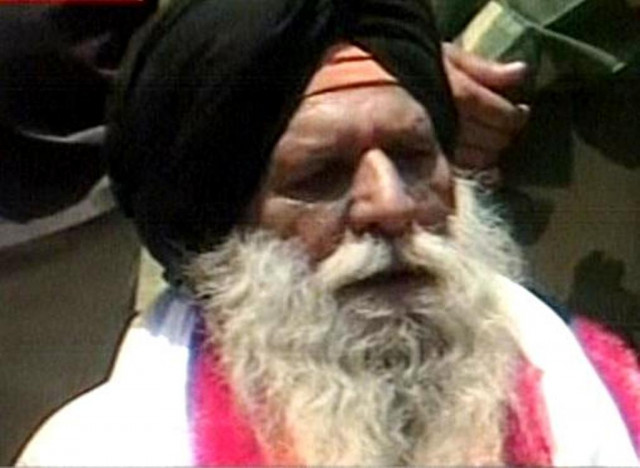Should we release an Indian agent?
Killing Sarabjeet Singh or letting him rot in jail till he dies will not serve the interest of the state.

Efforts to get Surjeet Singh out date back to 1989 when then prime minister Benazir Bhutto, desirous of turning over a new leaf after General Zia’s rule, declared a general amnesty for all condemned prisoners in the country and advised president Ghulam Ishaq Khan to convert all death sentences to life imprisonment. A legal point whether this could be done without the consent of the Pakistan Army stymied the amnesty; but the military later allowed the commutation. The fact is that if Pakistan keeps Surjeet Singh in prison any longer, it will be an illegal confinement as he has served out his life sentence, having already spent 22 years in jail.
Presidential spokesperson Farhatullah Babar has clarified the misperception that President Asif Ali Zardari ordered the spy’s release. According to Mr Babar, the law ministry sent a summary to the interior ministry for the release of Surjeet Singh and he will be released following clearance from the interior ministry, which will then inform the foreign office to contact the Indian authorities through diplomatic channels for a date of release.
The release of the Indian is a positive confidence-building measure on the part of Pakistan and is to be welcomed. Relations with India have been on the mend on the basis of a popularly supported free-trade regime. In addition, an Indian court recently released a visiting Pakistani national serving time in a murder case. What is now needed is that both countries continue to take such steps in the future as well despite the political uncertainty prevalent in the region, especially in Pakistan.
In this regard, it is pertinent to mention the case of Sarabjeet Singh as well, who is on death row and has filed several mercy petitions pleading for his release. In his case, it seems that public passion may thwart an important move in the reorientation of foreign policy in the interest of the Pakistani state and above all of the national economy. An earlier incident — that of the CIA contractor Raymond Davis who had killed two men in Lahore — had likewise aroused collective emotion but which was not effective in overthrowing the statesmanship aimed at preventing the state of Pakistan from becoming internationally isolated.
The trend in Pakistan is to take the conduct of foreign policy out of the domain of the executive and make it subservient to public emotion through TV channels and parliament. Since foreign policy belongs in the realm of the pragmatic based on the diplomatic strength of the state — which is another name for avoidance of international isolation — it cannot be judged on the same yardstick as internal policy, which is correctly subject to unbending laws. The common man and parliament, where the emotion of the common man is reflected, is usually not the right forum to decide foreign policy initiatives. Since states have always had to deal with the intersection of diplomacy with national law, all constitutions contain provisions of amnesty, which are usually not challenged by the supreme judiciary of the country. Foreign policies are not framed to satisfy national honour but to create situations of national advantage where national honour is indirectly upheld. Killing Sarabjeet Singh or letting him rot in jail till he dies will not serve the interest of the state.
Published in The Express Tribune, June 28th, 2012.














COMMENTS
Comments are moderated and generally will be posted if they are on-topic and not abusive.
For more information, please see our Comments FAQ